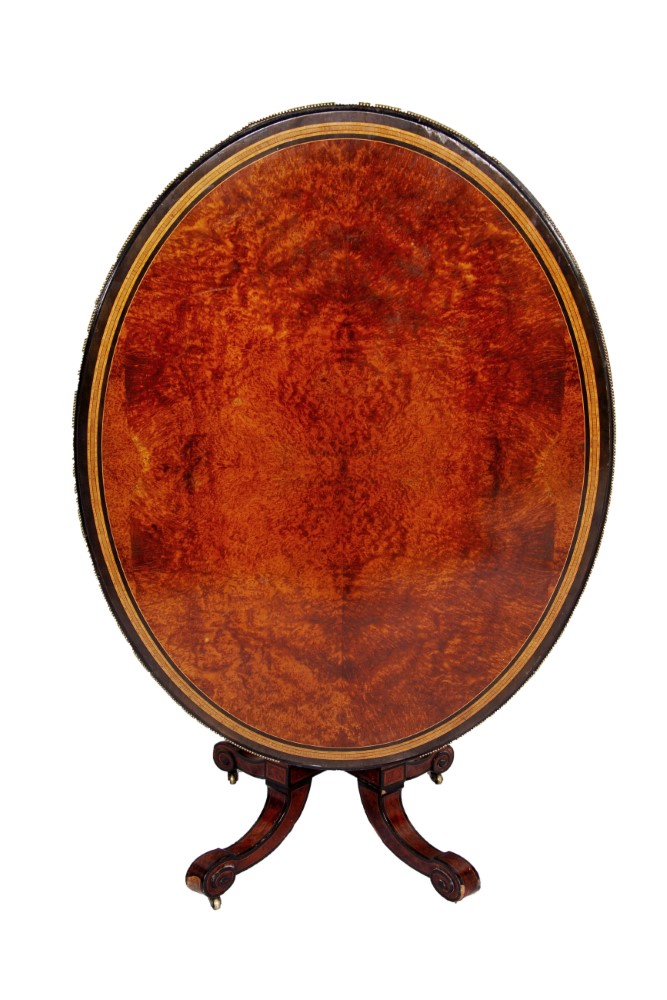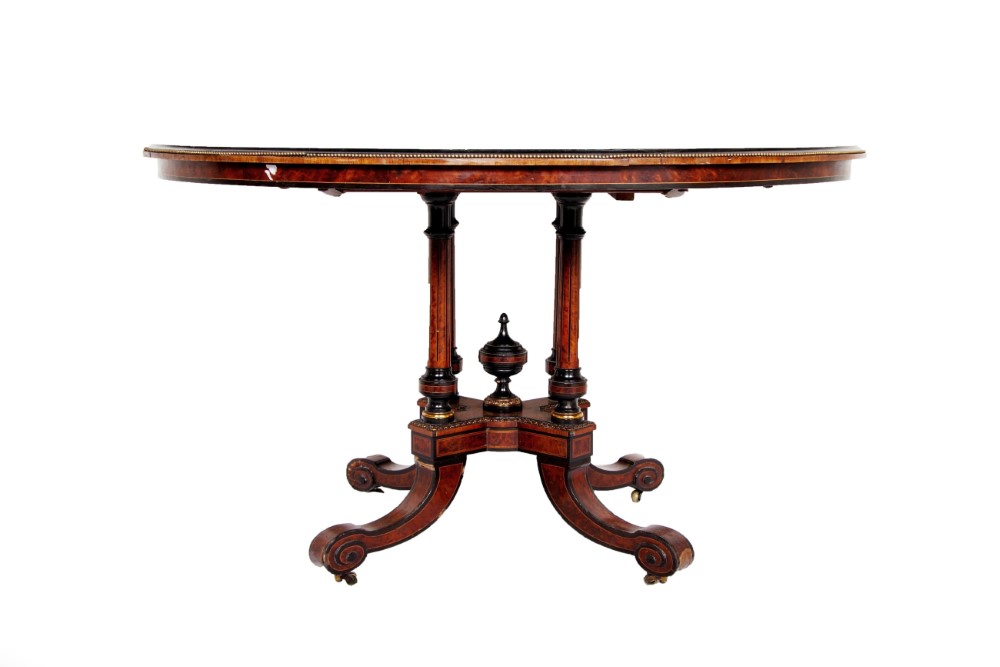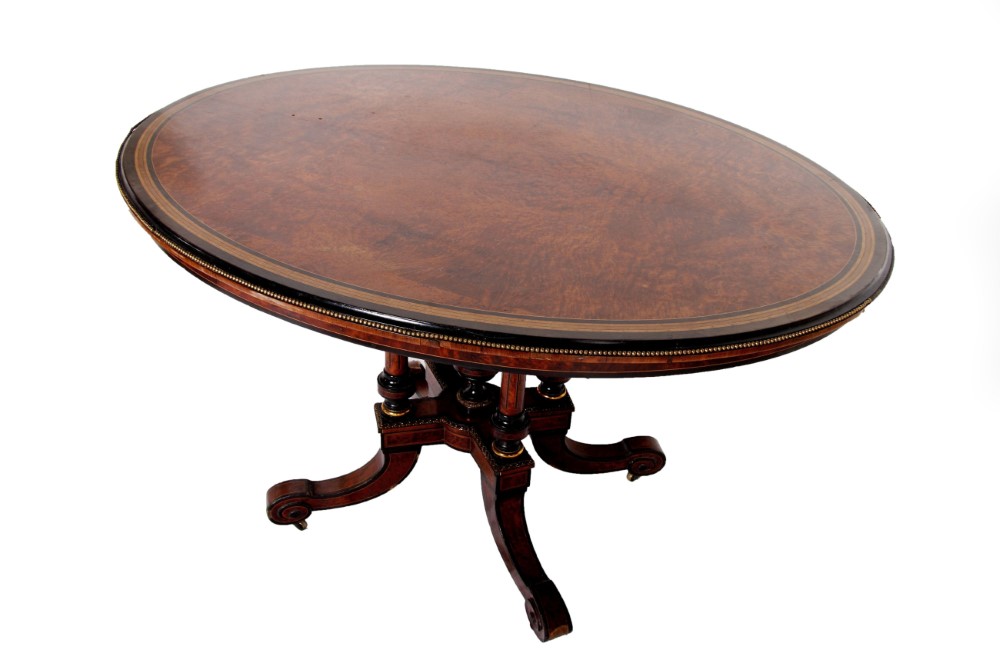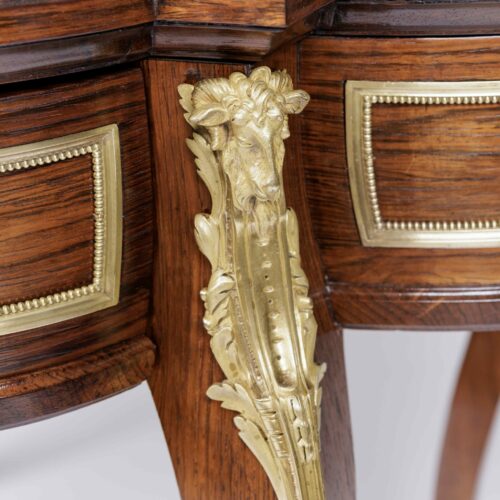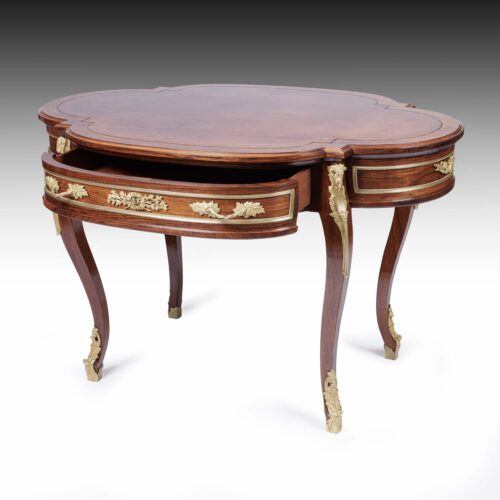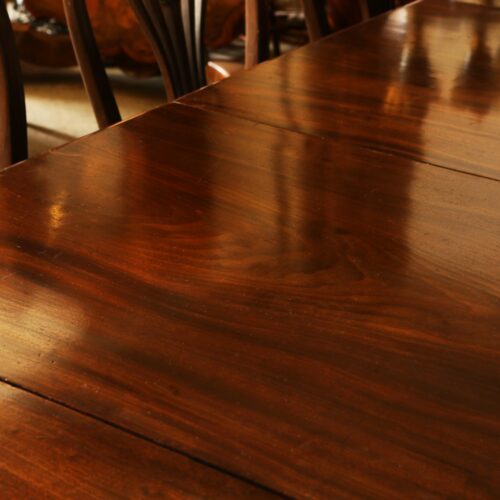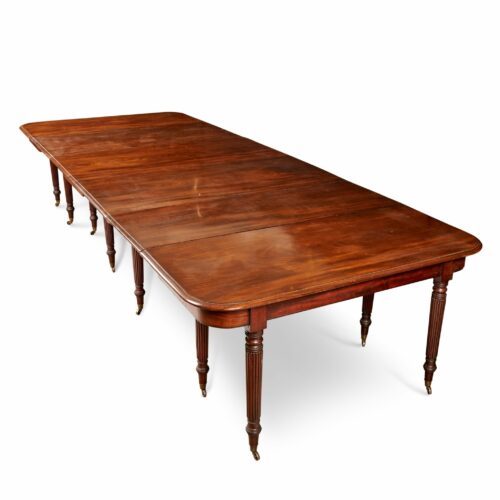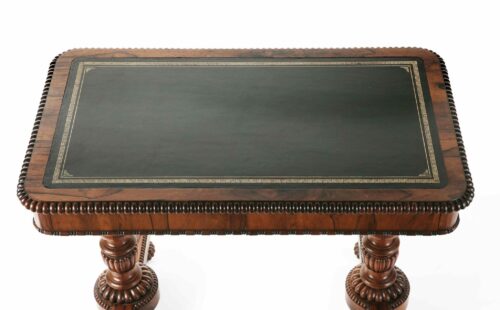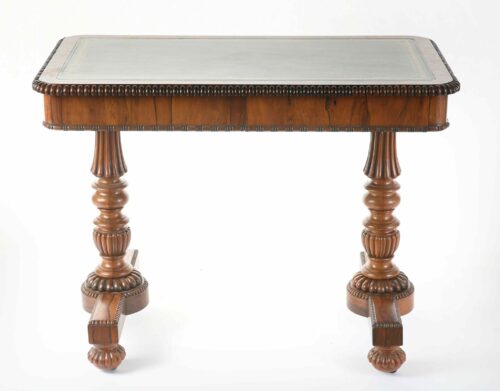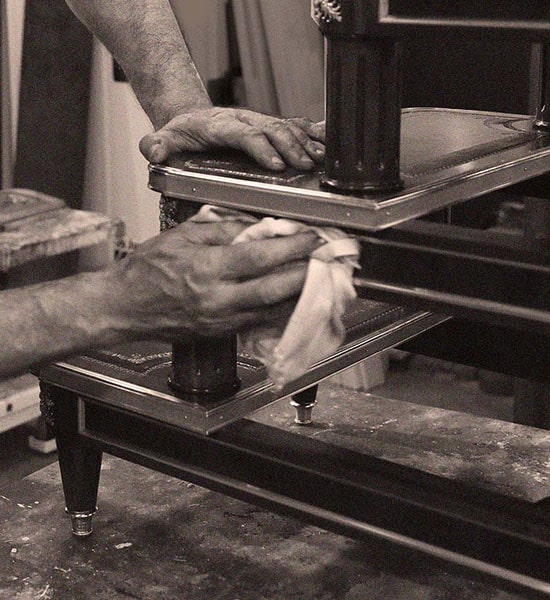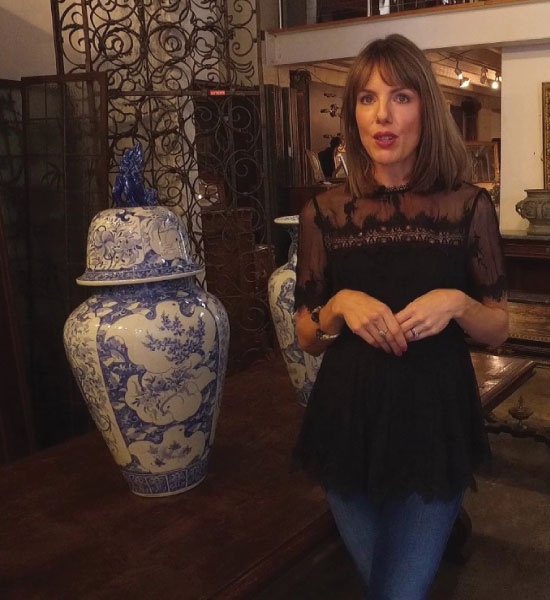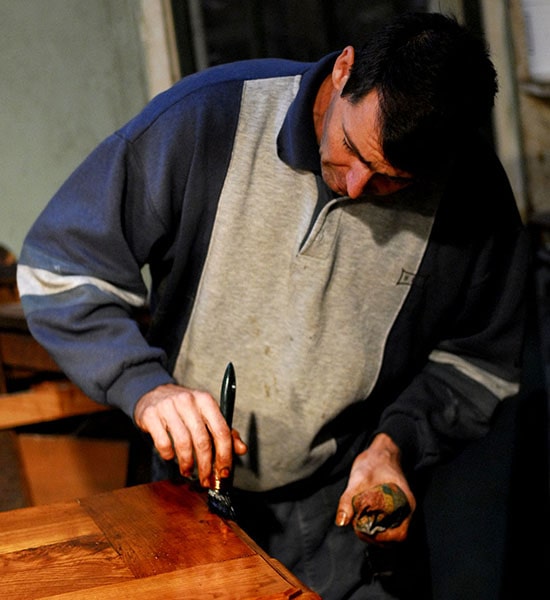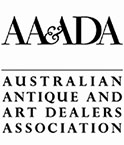ENGLAND
English Oval Centre Table (In The Manner Of Gillows)
English Oval Centre Table: A fine quality 19th century English oval antique centre table in good original condition. The amboyna tilt-top is bordered by cross-banded satinwood and ebonised timbers and embellished with ormolu beading. The top is supported by four fluted amboyna and ebony columns terminating in brass collars and joined by a stretcher embellished with an ebonised finial and finally terminating in four outswept and inlaid legs. In very good original condition needs a clean and re-polish which is included in the price.
Footnote: Robert Gillow was born on 2 August 1704 in Lancashire and founded the luxury furniture firm Gillows of Lancaster in 1730, following his apprenticeship as a joiner and cabinet maker. As a very young man he sailed to the West Indies as a ships carpenter, and it was in Jamaica that he became interested in mahogany, bringing samples back to England in 1720. This is reputed to be the first mahogany to be brought to British shores. He continued to charter ships to import the slow grown mahogany providing him solid timber of exquisite quality, which was not otherwise available at that time. His firm quickly established the reputation of supplying high quality furniture to some of the wealthiest families in the country, and they specialised in unusual veneers and painted designs such as japanning.
By 1764, a permanent London branch of Gillows had been established in Oxford Street by his son Thomas, and following his retirement in 1769, the firm was managed by his two sons, who continued its trade well past his death in 1772, and then by succession into the early 19th century. By the late 1800’s the company began to flounder and went into partnership with Waring of Liverpool and in 1903 the company officially became known as Waring and Gillow. The new entity continued to trade until going into receivership in 1932.
Gillows furniture has the esteemed reputation for its high level of craftsmanship and unique design, which is still highly sought after today.
Circa: 1860


